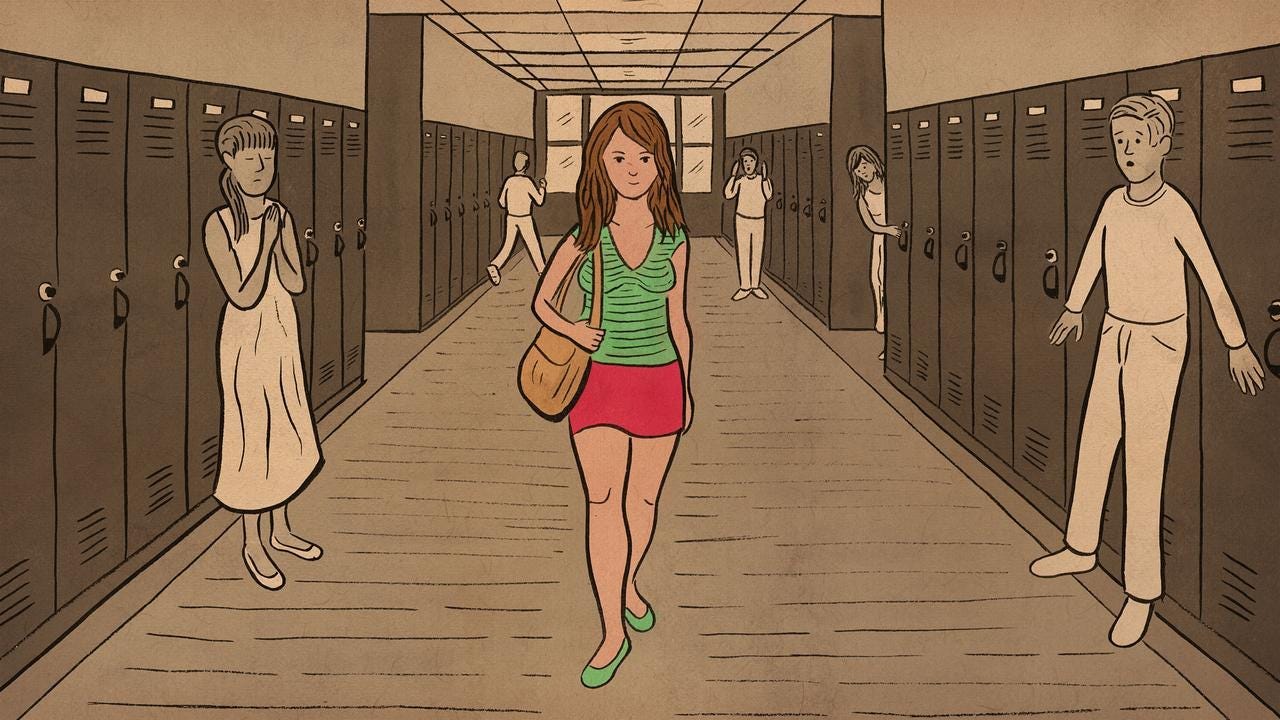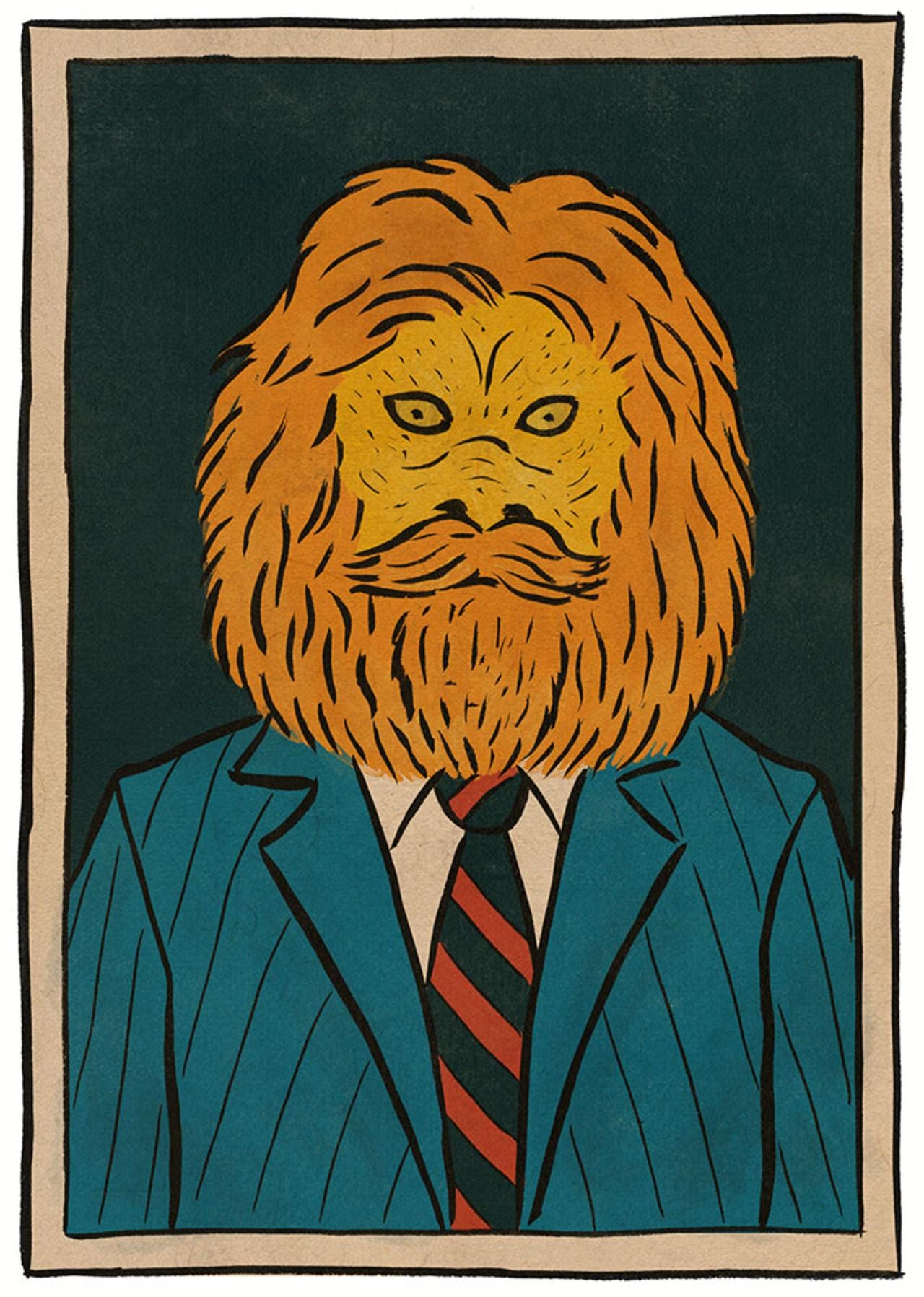My Childhood in an Apocalyptic Cult
A clandestine cult with twenty children to a room, no outside music, movies or books, and no contact beyond the compound. For the first fifteen years of my life, this was my normal.
When I started writing my book, Apocalypse Child: A Life in End Times, which was the basis for this Narratively Classic published in 2014, I had no idea what a memoir was — I just felt a compelling need to tell my story. Through the act of writing, I learned that when we write memoir we can both erase the trauma and relive the joy. Writing a memoir is a way to give meaning to life, to crystalize the images that bubble up from deep within the subconscious. An agent in New York read this article and reached out to me shortly after it was published. She asked if I had written more of my story because she found it compelling. I had. My book was published in March 2018. It is now in almost 200 libraries nationwide and has been used in a religious studies course at a California university. I have been featured in multiple TV and online shows, podcasts and articles. I've spoken at conferences, libraries, universities and bookstores. But most importantly, it has been my way of leaving a slice of my memory, a piece of my history.
—Flor Edwards
“Miss Edwards, do you have another shirt in your locker?” my second period Spanish teacher, Mrs. Buck, asked me on my first day of high school, making sure the whole class could clearly hear my dilemma.
I looked down at my breasts, their little white mounds pushing up and slightly out of a shirt that was low-cut and tight-fitting, but not too provocative, at least I thought.
Mrs. Buck’s orders to return to class the next day only if I had appropriate clothing came as a shock for two reasons: Firstly, I didn’t own a lot of clothes. Secondly, I grew up in a community where boys and girls spent a lot of time naked together. I did not understand the proper rules of dress code. Showing a little cleavage was no big deal to my teenage mind.
All my life I had been taught that constantly moving was part of our family’s duty to God. I had lost count of how many places we had lived. I wanted to be normal, so I convinced my parents to let me enroll in Rowland High School, in Southern California’s San Gabriel Valley. Earlier that morning I had been thrilled to start classes. At fifteen years old, it was my first day at any school, anywhere, ever.
On my way home I cried profusely for being ostracized for reasons I didn’t understand. I stopped at the local library, where I often went to read glossy women’s magazines. An issue of Seventeen caught my eye. I flipped through it. In a side bar, black bold letters read, "Did you grow up in a cult? Take this quiz and find out now."
I had heard the word “cult” when I was younger and had been trained to answer that, “No, I had not grown up in a cult” or “What’s a cult?” if anyone ever asked me.
Intrigued, I flipped to the story. In a sidebar black bold letters read, “Did You Grow Up in a Cult? Take this quiz and find out now.”
I stopped crying. Maybe there was a reason for my being ostracized. I turned to the quiz. I had to know the truth.
First question: “Did you grow up in a secluded environment?”
I thought about my early childhood in Thailand, before we moved back to the States. Every home I lived in there was required to have walls at least eight feet high, topped with loops of barbed wire or jagged glass sealed into the cement. The gates were boarded with plywood. I lived with my family and thirty to forty other people. I was told they were my "family in the Lord.”
We called ourselves “The Children of God.” I wasn’t allowed to leave without permission. If I did, I would be banned from ever returning and doomed to eternal hell and condemnation in the afterlife. My parents and the other adults I lived with told me that I was allowed to leave, but if I did I’d be giving up my birthright as one of God’s 144,000 chosen and would forfeit my spot in heaven come the apocalypse in 1993.
“Were you under the influence of a charismatic leader?”
I thought about David Brandt Berg. He lived in hiding. My parents followed him but were never allowed to see him. I never knew what he looked like. In photos he would white out his face and draw a picture of a lion head. He called himself “Father David,” but we kids were required to call him “Grandpa.”
“Were you coerced to recruit members to your group?”
I thought about the trips I’d go on, during which I was taught to tell people about Jesus and his love. We called it “witnessing.” These recruiting trips were the only times I could go beyond our compound.
“Were you taught that the outside world was a forbidden place, and did you feel guilty for wanting to leave?”
The world outside was referred to as “the system.” It was a scary place filled with evil, corruption and devilish temptations and desires. Father David referred to anyone who was not part of the Children of God as “systemites.” He sent out comic books with illustrations of what these systemites looked like—ultra-cool boys with slicked-back hair and baggy pants, girls with dyed hair, dangling jewelry, painted fingernails and lots of make-up. They were lost and it was our job to save them. We were taught to be natural and wear our hair long with minimal fuss. Make-up and jewelry was forbidden. Boys kept their hair short and men were not allowed to grow facial hair. Father David shunned any attention to fashion or outer appearance. “Worldliness,” he called it, was a device of the Devil. I was told I was special because I was born into the Children of God. Over time, I learned to believe it.
Until I picked up that issue of Seventeen, I thought we were just part of a religious missionary group with strict rules. I followed my family and trusted them.
All of our lives, we had never been allowed to choose where to live, what clothes to wear or what food to eat. Everything had been decided for us.
For the next few weeks after taking the Seventeen quiz, the words ran like a mantra through my mind: Oh my God…I grew up in a cult…Where do I go from here?



